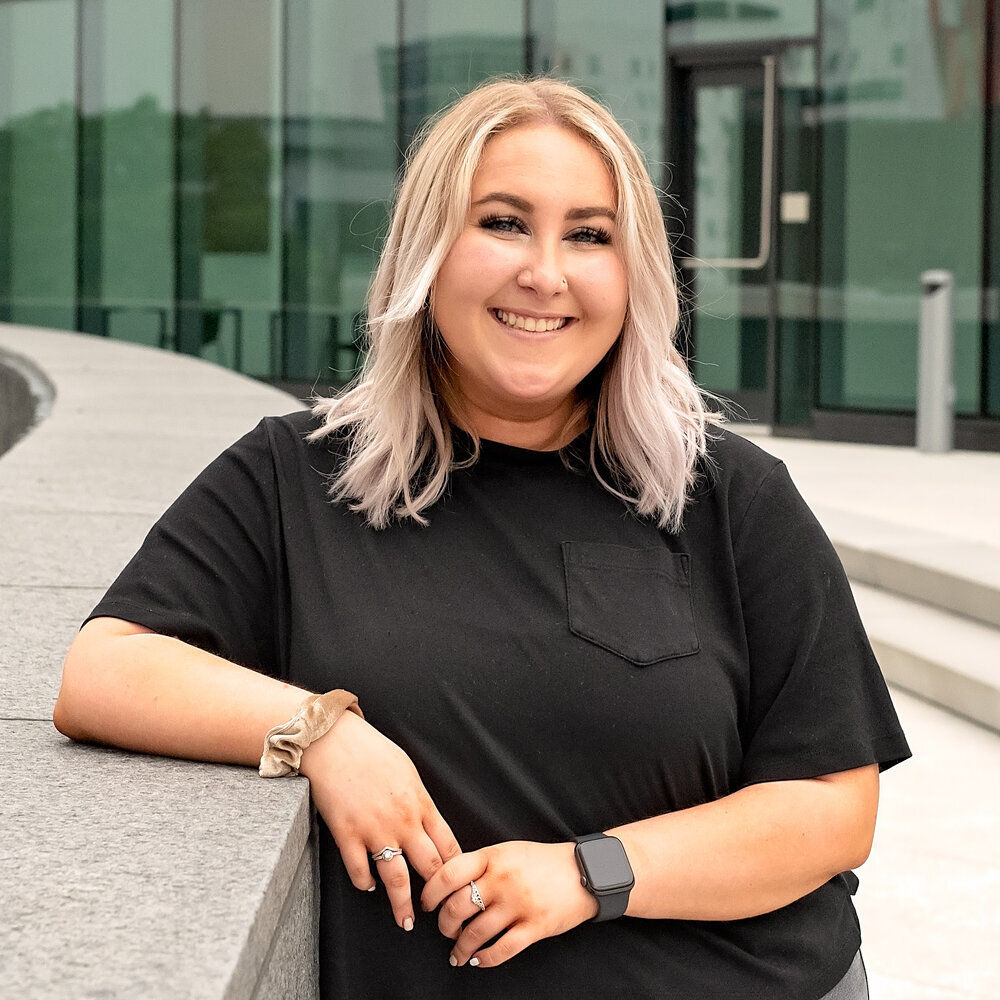
In the Behavioral Neurophysiology Lab in the College of Liberal Arts, researchers work to understand the effects of cocaine and opiate drug use on the human body, researching topics ranging from the roles of specific scaffolding proteins in drug relapses to examining how adolescent stress alters the brain’s response to cocaine. As the lab’s resident research technician, Lizzie Birmingham, a master of social work student, is responsible for ensuring the lab has everything it needs to function.
In addition to organizing the lab’s scheduling, ordering supplies, and managing the general upkeep of the facility, Birmingham also conducts research into the differences in substance abuse disorders between sexes.
“One of the projects that we’re working on publishing right now is focused on how female ovarian circulating hormones can impact drug taking, drug seeking, and relapse,” she explains. “One of the things that I’ve been able to do is manipulate the circulation of those hormones to see what effect they have on making people relapse to substances, specifically cocaine.”
As an MSW student, Birmingham’s understanding of substance abuse disorders extends beyond laboratory research. She studied psychology as an undergraduate at Temple, a decision she credits to her father’s experiences with Alcoholics Anonymous (AA).
“My dad has been in AA my whole life,” she says, “so I grew up learning about substance abuse, the 12-step program, and the role of mental health. I didn’t know exactly what I wanted to do, but I knew that I wanted to go into the mental health realm in some capacity.”
During her undergraduate studies, Birmingham found herself working in the area of substance abuse disorders. In addition to being an undergraduate research assistant in the Behavioral Neurophysiology Lab, she spent a year working for Gaudenzia, a provider of addiction treatment and recovery services.
“My unit was a mental health support unit for individuals with drug and alcohol problems coming out of state prison on parole.” she says. “I was responsible for doing my rounds every hour to check in on the patients, and I also ran mental health groups for people to talk. I loved the work I did there.”
Birmingham’s willingness to help others extends to her fellow social worker students at Temple, where she is the student leader of the Social Work Student Collective, an organization that offers social work students a place to share their experiences in the program and do outreach, such as organizing a fundraiser for the Student Emergency Aid fund.
Looking ahead, Birmingham hopes to continue helping people in need as a social work intern at Temple Hospital’s Episcopal Campus, where she assists in discharge planning across multiple units, ensuring that patients have access to the resources they need—such as housing, outpatient therapy, and job preparation—once they leave the hospital.
